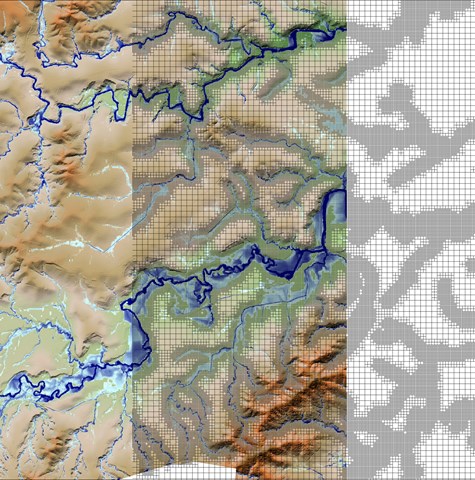Quadtree and Sub-Grid Sampling (SGS) are set to revolutionise what is considered the standard flood modelling approach in the coming years. This is due to a number of non trivial reasons:
1) Quadtree allows for the refinement of cell resolution where desired. This feature is incredibly easy to implement. In many situations Quadtree will replace 1D open channel nesting previously used when the 2D model cell resolution was too coarse to adequately define in-bank geometry.
2) TUFLOW's implementation of SGS is unique for the industry. It removes all saw tooth sidewall loss artefacts, removing all sensitive to cell orientation assumptions in steep sidewall situations (common in urban settings). It also has excellent cell size independent accuracy. What does cell size independent accuracy mean? Where the topography is adequately defined, TUFLOW will produce consistent results irrespective whether the cell resolution if further refined. By comparison, other software with SGS implemented are far more sensitive to cell size assumptions in floodway regions, with slight changes in cell size causing significant changes in flood level! This is not a desirable trait, and is something the TUFLOW team spent over a year researching and testing to avoid during the development of SGS.
This course discusses the background behind the new Quadtree and SGS features. It also uses hands-on model update exercises to demonstrate how easy the features are to use.





